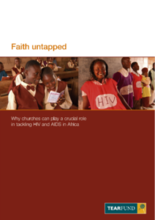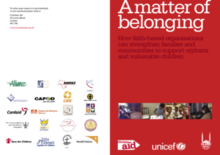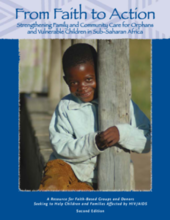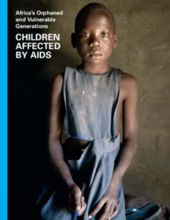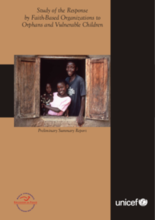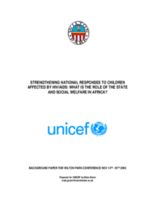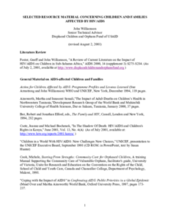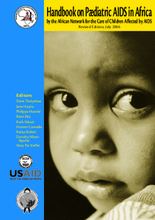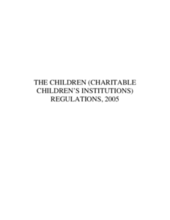Displaying 1521 - 1530 of 1627
Contains a set of forward-leaning recommendations for churches and the donor community. Also contains an analysis of the role of faith-based groups in the response, specific case studies, the potential to do more on the ground, and challenges faced by churches.
A guide for faith-based organizations working in developing countries on issues related to orphans and vulnerable children. Contains examples of successful community-based and family support care programs throughout the world that are run by faith-based groups. Discourages the use of institutional care and orphanages.
A tool to encourage donors to fund community programs that keep children in family care, rather than simply funding orphanages. Describes the many strategies being used to invest in community-based care, and contains specific program examples.
This report contains new and improved research and statistical infortmation on orphans and vulnerable children, including what governments, NGO's, the private sector and the international community can do to better respond.
A study that looks at the response of faith-based organizations in Kenya, Malawi, Mozambique, Namibia, Swaziland, and Uganda. The report contains statistical information, and details positive care practices to build on, and negative examples to avoid.
Overview of social protection and welfare directions around the world, with recommendations for policies to protect vulnerable children and those affected by HIV/AIDS in Africa.
An updated list of literature and bibliographies concerning children and families affected by HIV/AIDS around the world. Most of the resources are focused on sub-Saharan Africa.
A practical resource handbook for health professionals. Topics covered include HIV epidemiology, preventing HIV infection, care of HIV-exposed or HIV-infected children, diagnosis and clinical staging of HIV infection, clinical conditions associated with HIV, antiretroviral therapy, adolescent issues, long-term and terminal care planning for children affected by HIV/AIDS and their families, counseling and psychosocial support, and nutrition.
This document outlines the regulations for charitable children's institutions (CCIs) in Kenya.
This manual aims to help trainers, OVC programme staff and volunteers refocus on the non-material support they offer to children and to demonstrate how this can be offered in a structured way.

